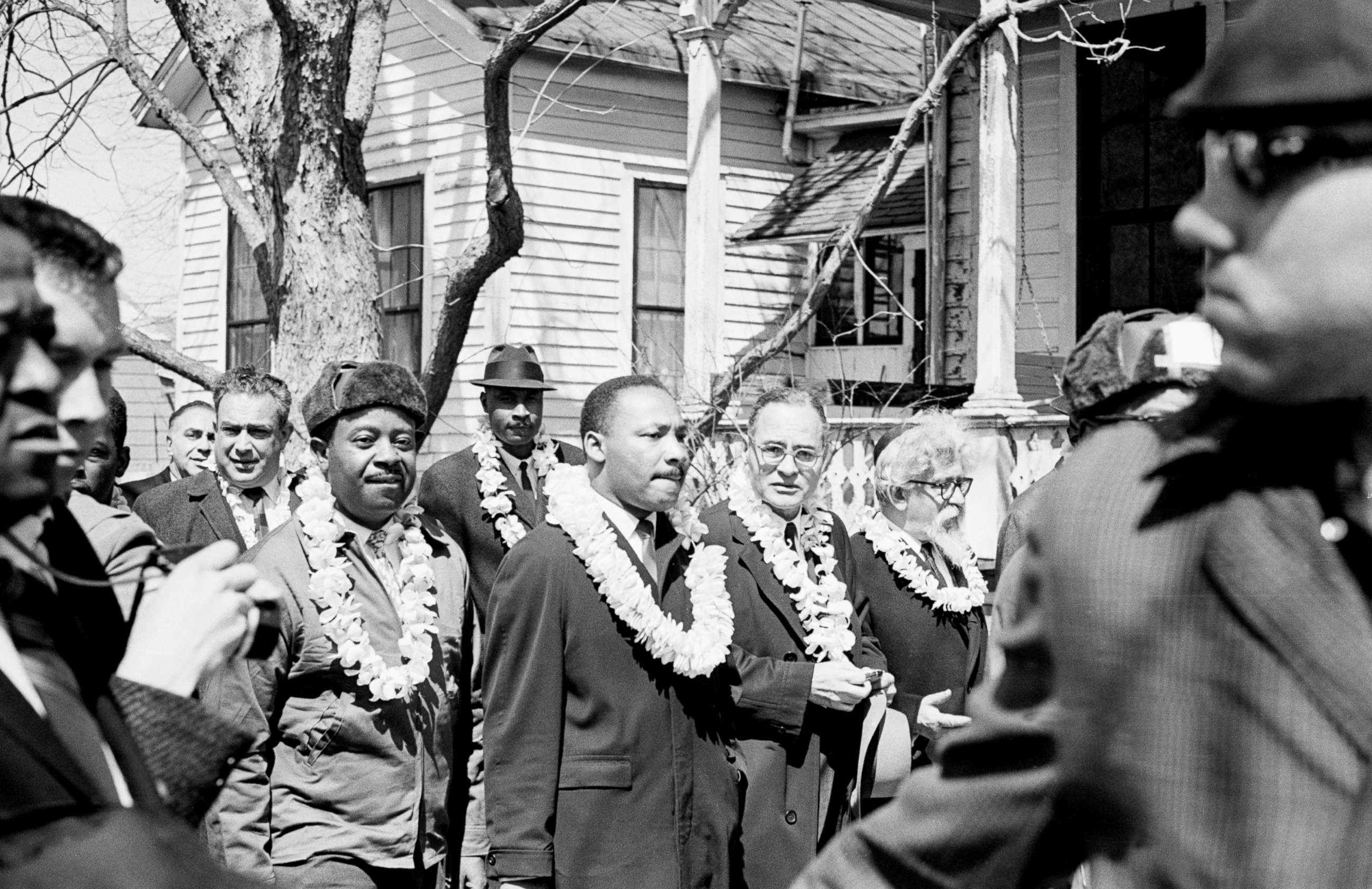Community leaders look to keep historic black and Jewish alliance intact
Both black and Jewish community leaders have held a number of recent events.
There's an iconic image from the 1960s of Rabbi Abraham Joshua Heschel marching alongside Rev. Dr. Martin Luther King during the civil rights protests in Selma, Alabama -- a symbol of alliance between the black and Jewish communities.
Yet recent high-profile crimes committed against Jews by blacks have some leaders in both communities questioning whether that alliance is under threat. Leaders in both communities have taken action to ensure that the historic collaboration between blacks and Jews in the quest for civil rights remains strong.
In December, a black couple launched a deadly attack at a New Jersey kosher supermarket. The pair, David Anderson and Francine Graham, stormed the business with guns blazing, killing three civilians inside.
Killed by police at the scene, Anderson and Graham, suspected of killing two others prior to the kosher market rampage, also possessed a homemade pipe bomb powerful enough to send shrapnel flying over 500 yards, or the length of five football fields.
It was later revealed that both Anderson and Graham were virulent anti-Semites with a deep-seated hatred for Jews and law enforcement.
That same month, five members of an ultra-Orthodox Hasidic Jewish congregation were stabbed by a man wielding a machete-type knife who barged into a Hanukkah celebration at a rabbi's home in Monsey, New York, and attacked victims at random. The suspected attacker was arrested in New York City hours after the incident.
The suspect in that case, 38-year-old Grafton Thomas, is also black. At his home, investigators recovered journals which had anti-Semitic sentiments including references to Hitler and "Nazi Culture on the same page as drawings of a Star of David and a Swastika," according to a federal complaint.
While there was a slight dip in hate crimes from 2017 to 2018 -- from 7,175 incidents to 7,120 -- the level of hate crimes in the U.S. is "unacceptably high," John Cohen, a former Department of Homeland Security undersecretary and ABC News contributor, said.
Most hate crimes in 2018 were motivated by race, ethnicity or ancestry bias (59.5%) and by religious bias (18.6%). In both categories, blacks and Jews were victimized most, according to the FBI's 2018 hate crime statistics.
It is the shared history of discrimination that makes the recent, violent anti-Semitic attacks perpetrated by black people even more jarring.
"In the 1960s, when the alliance between blacks and Jews was strong, white Jewish leaders understood that there were fundamental differences between the African-American experience and the white Jewish American experience," according to Mark Dollinger, author of "Black Power, Jewish Politics."
Dollinger said the common narrative of oppression that Jews and African-Americans share is false. American Jews were able to rapidly move up into middle-class while African Americans come from a legacy of white supremacy and slavery.
"I think it’s a little euphemistic to think that American white Jews had the same experience in this country as blacks," Dollinger said. "I am not so surprised that there are continuing tensions because there is fundamental differences between the two even as there has been an historical alliance."
Both black and Jewish community leaders have held a number of recent events in wake of the two recent anti-Semitic attacks and what many perceive as an overall resurgence in hateful crimes and speech.
In a spectacular call-to-action, approximately 10,000 people marched across the Brooklyn Bridge in New York City in a rally on Jan. 5 to stand up to hate. There have been similar grassroots efforts specifically addressing the unique alliance between black Americans and Jews springing up around the country.
Shortly after the Monsey attack, the Congressional Caucus on Black-Jewish Relations condemned it "in the strongest possible terms" and said the surge in anti-Semitic attacks is a "disturbing trend both here in the United States and abroad." Rev. Al Sharpton also gathered black religious and civil rights leaders and Jewish allies to denounce anti-Semitism after the horrific crime.

Dr. Martin Luther King Jr.'s legacy was honored at an annual Shabbat service at Temple Solel in Florida on Jan. 17, with guest speaker Yolanda Savage-Narva, executive director of Operation Understanding D.C., an organization that brings together black and Jewish teens.
At the service, Savage-Narva discussed her experiences as an African-American Jewish woman, emphasizing the meaningful impact that Jewish and black civil rights leaders like King, Fannie Lou Hamer and Dr. Abraham Heschel have had on her.
"King’s life and legacy are no less sacred to the Jewish community than they are to the black community," said Rabbi Jeffrey Salkin of Temple Solel. "We are partners in creating a better America."
And scores of people packed into Temple Shalom in Wheeling, West Virginia, last week to discuss the similarities between the two marginalized communities.
"Despite recent events in the news media, those events have not tainted or trickled down to the local communities. In Wheeling, West Virginia, we don't have that tension," Ron Scott Jr., the Wheeling YWCA’s cultural, diversity and community outreach director, told ABC News.
He said he hopes that blacks and Jews remember their history despite anti-Semitic crimes around the country.
"We want to remind people how we have been strong together and reinforce that we have shared the same narrative during civil rights," Scott said. "We support one another."
ABC News' Bill Hutchinson, Mark Osborne, Emily Shapiro and Luke Barr contributed to this report.